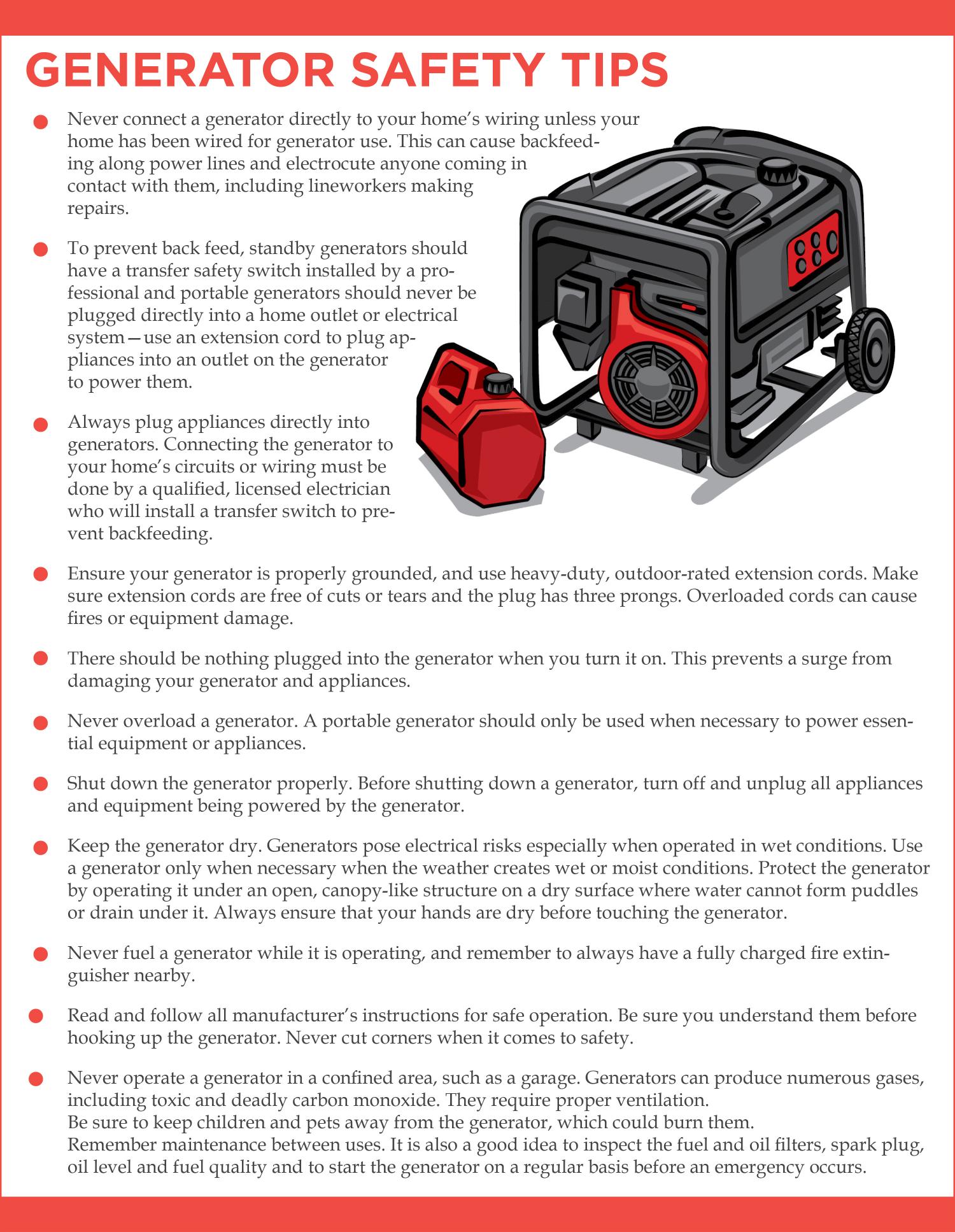RESIDENTIAL BACKUP GENERATOR REQUIREMENTS
Think about safety when operating generator
A generator can be a valuable piece of equipment to keep appliances working during a power outage, but Rock Energy Cooperative and Safe Electricity urge you to make sure you understand power and safety considerations before adding a generator to your home.
There are two types of generators for homeowners to choose from: portable and standby. A portable generator is usually gas powered, you can plug appliances into it and it can easily be moved around. Standby generators are installed directly to the house and are typically powered by natural gas or propane. These generators start automatically when the power goes out.
Begin by identifying your basic electrical needs in the event of a power outage and calculating the number of watts needed. You will want a generator that produces more power than all the equipment combined plus the initial surge when it is turned on. You may want to contact an electrician to determine your needed power usage.
After choosing a generator, there are many safety concerns to consider. Be sure to read and follow all manufacturer operating instructions to properly ground the generator before hooking it up.
Never plug a generator into a wall outlet. This creates backfeed, which means the generator is feeding electricity back through your electrical system and meter and into the power lines. This jeopardizes the safety of linemen attempting to restore power as well as anyone who may be near downed or sagging lines because it energizes the previously dead lines.
Standby generators should be installed by a qualified electrician who will also install a transfer switch to prevent backfeed. That device will automatically separate your home system from the utility system. Your local utility should be notified before directly wiring a generator into your home’s electrical circuit.
Portable generators can be handy when used properly but can be deadly as well, particularly from carbon monoxide fumes emitted by the gasoline engine on the generator. Always operate your portable generator outdoors to keep exhaust fumes out of the home. It should be kept at least 10 feet from your home and operated with extension cords.
It is recommended that you operate your generator once a month for at least 10 minutes to ensure that it is running properly. Keep the generator where it will be easily accessible and weatherproof. It is advisable to have enough fuel for at least 24 hours.
For more information on generator safety, download our brochure.

